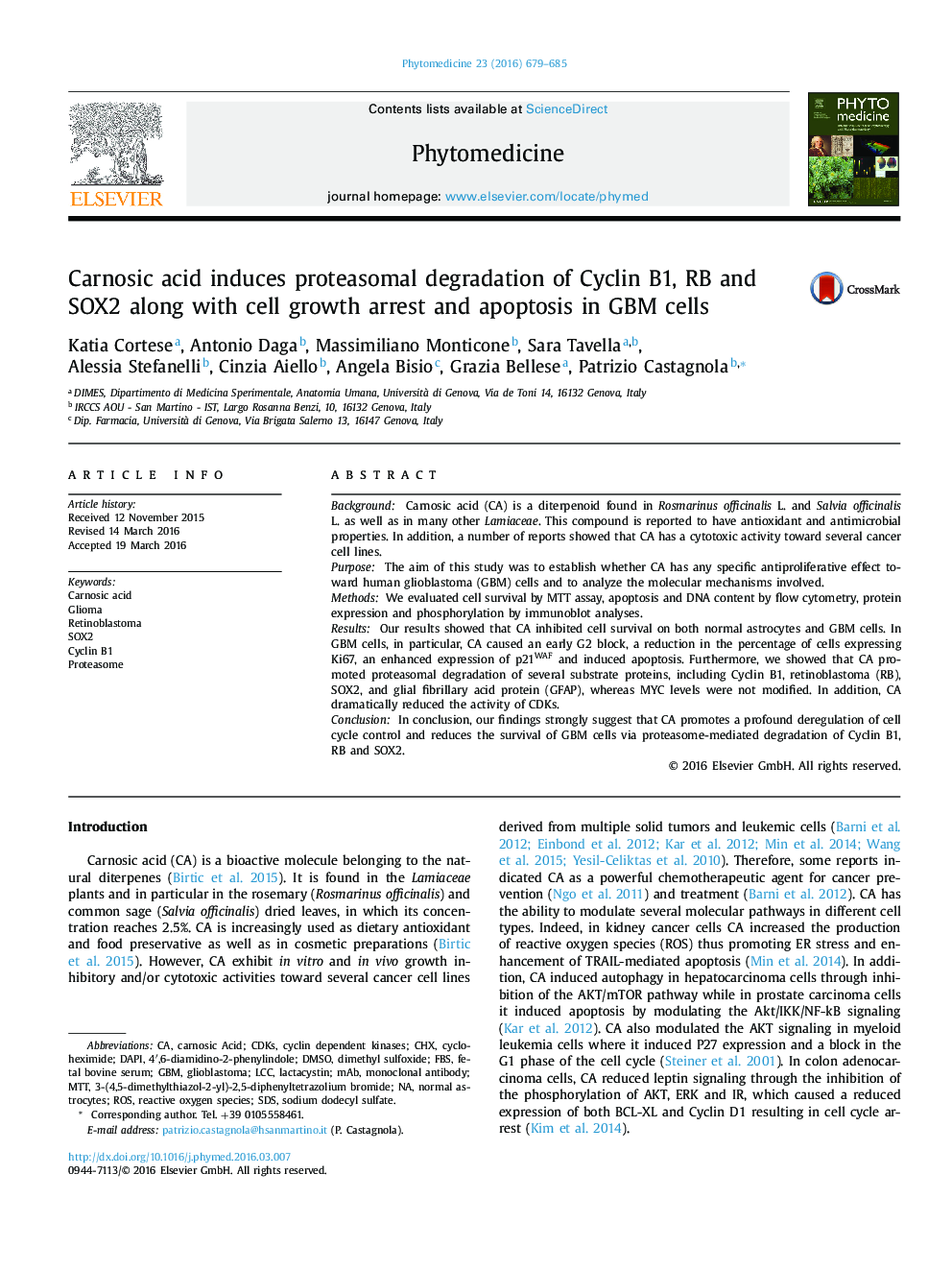| Article ID | Journal | Published Year | Pages | File Type |
|---|---|---|---|---|
| 2496304 | Phytomedicine | 2016 | 7 Pages |
BackgroundCarnosic acid (CA) is a diterpenoid found in Rosmarinus officinalis L. and Salvia officinalis L. as well as in many other Lamiaceae. This compound is reported to have antioxidant and antimicrobial properties. In addition, a number of reports showed that CA has a cytotoxic activity toward several cancer cell lines.PurposeThe aim of this study was to establish whether CA has any specific antiproliferative effect toward human glioblastoma (GBM) cells and to analyze the molecular mechanisms involved.MethodsWe evaluated cell survival by MTT assay, apoptosis and DNA content by flow cytometry, protein expression and phosphorylation by immunoblot analyses.ResultsOur results showed that CA inhibited cell survival on both normal astrocytes and GBM cells. In GBM cells, in particular, CA caused an early G2 block, a reduction in the percentage of cells expressing Ki67, an enhanced expression of p21WAF and induced apoptosis. Furthermore, we showed that CA promoted proteasomal degradation of several substrate proteins, including Cyclin B1, retinoblastoma (RB), SOX2, and glial fibrillary acid protein (GFAP), whereas MYC levels were not modified. In addition, CA dramatically reduced the activity of CDKs.ConclusionIn conclusion, our findings strongly suggest that CA promotes a profound deregulation of cell cycle control and reduces the survival of GBM cells via proteasome-mediated degradation of Cyclin B1, RB and SOX2.
Graphical abstractFigure optionsDownload full-size imageDownload high-quality image (190 K)Download as PowerPoint slide
